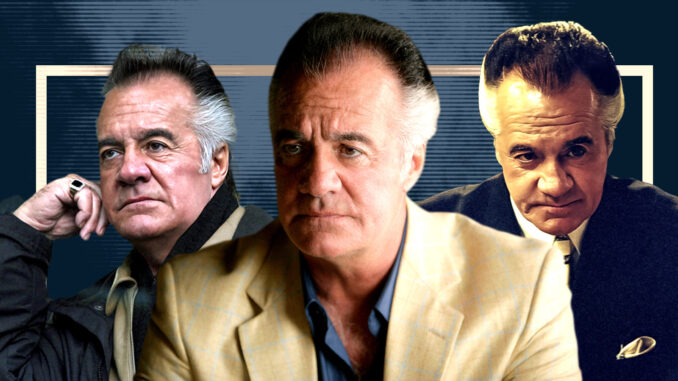
When you think of The Sopranos, your mind likely conjures images of the iconic Tony Soprano, portrayed brilliantly by James Gandolfini. But as we delve into the highest-rated episodes of the series, it becomes clear that another character shines just as brightly, if not more so: Christopher Moltisanti. The combination of his ambition, vulnerability, and tragic downfall makes him one of the most compelling characters in the show. Let’s explore why episodes like “Pine Barrens” and “Long Term Parking” reveal Christopher as the heart and soul of The Sopranos.
Christopher’s Journey: A Complex Character
Christopher Moltisanti, played by Michael Imperioli, is the embodiment of the American Dream gone awry. As Tony’s protégé, he struggles to balance his dreams of becoming a successful filmmaker with the grim realities of mob life. Throughout the series, Christopher’s character arc showcases his internal conflicts, highlighting his desires, vulnerabilities, and ultimately, his tragic fate.
Ambition Meets Addiction
From the beginning, Christopher is portrayed as a character with immense potential, yet his ambition is continually undermined by his addiction to drugs. His struggles with heroin and cocaine not only impact his performance as a mobster but also strain his relationships, particularly with his girlfriend, Adriana La Cerva. In many ways, Christopher represents the darker side of the American Dream, where the pursuit of success is entangled with destructive choices.
In the episode “Pine Barrens,” we see this conflict play out in a humorous yet poignant way. While attempting to dispose of a body with Paulie Gualtieri, Christopher’s bravado crumbles in the face of the absurdity and danger of their situation. The snowy wilderness becomes a metaphor for Christopher’s own insecurities, as he grapples with both his identity and his moral compass. The mix of comedy and crisis in this episode perfectly encapsulates the duality of Christopher’s character.
“Pine Barrens” and the Humor of Despair
The brilliance of The Sopranos lies in its ability to balance humor with serious themes. “Pine Barrens” is a prime example of this mastery. While it presents a seemingly ridiculous scenario—mobsters lost in the snowy woods—it also digs deep into the psyche of Christopher.
A Moment of Clarity in Chaos
As Christopher and Paulie struggle to deal with the body they were meant to dispose of, we witness a side of Christopher that’s often overshadowed by his darker impulses. His fumbling attempts to navigate their predicament reveal a vulnerability that resonates with viewers. Despite being entrenched in a world of violence and crime, Christopher longs for something more meaningful. This contrast between his tough exterior and his inner turmoil makes him relatable and deeply human.
In this episode, Christopher’s flaws become a source of both comedy and tragedy. He’s caught in a world that demands ruthless efficiency, yet he is a character who often seems overwhelmed by his circumstances. This duality adds depth to his character and highlights why he stands out in the series.
“Long Term Parking”: A Heart-Wrenching Turn
If “Pine Barrens” offers a glimpse into Christopher’s vulnerability through humor, “Long Term Parking” brings his struggles into sharp focus. This episode marks a turning point for Christopher, highlighting the grim realities of his life choices and their consequences.
The Pain of Loss and Regret
In “Long Term Parking,” Christopher is confronted with the loss of Adriana, who becomes a casualty of the mob life he inhabits. The episode expertly captures the emotional fallout from her death, showcasing Christopher’s deep affection for her and the devastation he feels. His admission of love for Adriana after her death reveals a side of him that craves genuine connection, despite the violence that surrounds him.
This episode highlights the complexities of Christopher’s character, showing that he is not just a mobster; he is also a person plagued by love, loss, and regret. The juxtaposition of his violent lifestyle with his longing for affection makes him one of the most tragic figures in the series. Viewers can’t help but empathize with him, even as he grapples with his darker impulses.
Christopher’s Impact on the Show
Christopher’s evolution throughout The Sopranos profoundly impacts the narrative and the dynamics within the mob family. His relationships, particularly with Tony, Paulie, and Adriana, reveal the intricate web of loyalty, betrayal, and ambition that characterizes the series.
A Catalyst for Tension
Christopher’s presence is a double-edged sword. While he serves as Tony’s right-hand man and a source of pride, his struggles with addiction and lapses in judgment create significant tension within the group. Tony’s mixed feelings toward Christopher—pride in his potential and frustration with his failings—illustrate the complex mentor-mentee relationship that permeates the show.
After Christopher’s death, the power dynamics within the mob shift dramatically. Tony’s relief at losing Christopher reveals his cold, sociopathic tendencies, highlighting how personal ambitions often outweigh genuine emotional connections in the world of organized crime. This loss leaves a significant void, changing the nature of the mob’s operations and escalating the tension between remaining members like Paulie and Silvio Dante.
Conclusion: Why Christopher is the Heart of The Sopranos
Christopher Moltisanti’s character encapsulates the essence of The Sopranos. His journey through ambition, addiction, and loss resonates with audiences, making him one of the most compelling figures in the series. Episodes like “Pine Barrens” and “Long Term Parking” showcase his depth, balancing humor with poignant moments that explore the human experience.
Ultimately, Christopher represents the tragic reality of the American Dream, where ambition can lead to destruction. His struggles and vulnerabilities not only highlight the complexities of mob life but also resonate with viewers on a deeper level. In a show filled with memorable characters, Christopher Moltisanti stands out as a symbol of hope, failure, and the relentless pursuit of meaning in a chaotic world.
